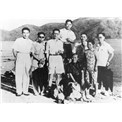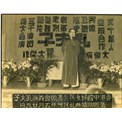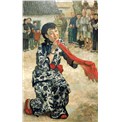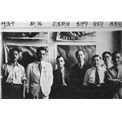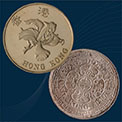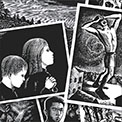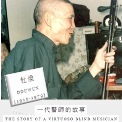-
History & Society
- Education in Pre-war Hong Kong
- History of Taikoo Sugar Refinery
- Hong Kong Products Exhibition
- Local Festivals Around the Year
- Post-war Industries
- Pre-war Industry
- The Hong Kong Jockey Club Archives
- Tin Hau Festival
- Memories We Share: Hong Kong in the 1960s and 1970s
- History in Miniature: The 150th Anniversary of Stamp Issuance in Hong Kong
- A Partnership with the People: KAAA and Post-war Agricultural Hong Kong
- The Oral Legacies (I) - Intangible Cultural Heritage of Hong Kong
- Hong Kong Currency
- Hong Kong, Benevolent City: Tung Wah and the Growth of Chinese Communities
- The Oral Legacies Series II: the Representative List of the Intangible Cultural Heritage of Hong Kong
- Braving the Storm: Hong Kong under Japanese Occupation
- A Century of Fashion: Hong Kong Cheongsam Story
Geography & EnvironmentArt & Culture- Calendar Posters of Kwan Wai-nung
- Festival of Hong Kong
- Ho Sau: Poetic Photography of Daily Life
- Hong Kong Cemetery
- Sketches by Kong Kai-ming
- The Culture of Bamboo Scaffolding
- The Legend of Silk and Wood: A Hong Kong Qin Story
- Journeys of Leung Ping Kwan
- From Soya Bean Milk To Pu'er Tea
- Applauding Hong Kong Pop Legend: Roman Tam
- 他 FASHION 傳奇 EDDIE LAU 她 IMAGE 百變 劉培基
- A Eulogy of Hong Kong Landscape in Painting: The Art of Huang Bore
- Imprint of the Heart: Artistic Journey of Huang Xinbo
- Porcelain and Painting
- A Voice for the Ages, a Master of his Art – A Tribute to Lam Kar Sing
- Memories of Renowned Lyricist: Richard Lam Chun Keung's Manuscripts
- Seal Carving in Lingnan
- Literary Giant - Jin Yong and Louis Cha
Communication & Media- Hong Kong Historical Postcards
- Shaw Brothers’ Movies
- Transcending Space and Time – Early Cinematic Experience of Hong Kong
- Remembrance of the Avant-Garde: Archival Camera Collection
- Down Memory Lane: Movie Theatres of the Olden Days
- 90 Years of Public Service Broadcasting in Hong Kong
- Multifarious Arrays of Weaponry in Hong Kong Cinema
-
History & SocietyGeography & EnvironmentArt & Culture
-
View Oral History RecordsFeatured StoriesAbout Hong Kong Voices
-
Hong Kong Memory
Renowned Cultural Figures in Hong Kong
As one major Chinese city after another fell to Japanese forces after the War of Resistance broke out, many prominent politicians, writers, artists, singers, dancers, comic artists, journalists and filmmakers fled to Hong Kong, from where they were able to promote the anti-Japanese campaign to other countries. The city’s cultural sector underwent significant changes as a result.
Following the September 18 Incident in 1931, the Renjian Manhua, a comic book founded in Hong Kong, printed an epilogue in which it stated that ‘the cultural sector should not remain aloof and detached from reality.’ From 1932 onwards, a number of magazines and periodicals debuted in Hong Kong to drive the development of anti-Japanese literature in the city. On 27 January 1939, the board of directors of the National Writers’ and Artists’ Association of China set up a branch in Hong Kong with the enthusiastic involvement of numerous scholars and writers in Hong Kong at the time, including Hsu Ti-shan, Lou Shiyi and Dai Wangshu. At the same time, Ye Gongchuo, Jen Yu-wen and others founded the Chinese Cultural Association in Hong Kong in September 1939 with the support of the Chinese Nationalist government. Renowned cultural figures such as Mao Dun, Zou Taofen, Xia Yan, Qiao Guanhua, Hu Yuzhi, Wang Ying, Xu Beihong, Ye Qianyu, Yu Feng and Huang Miaozi were all active in Hong Kong. The Hua Shuang Daily was founded in Hong Kong in April 1941, while many works of art, films and comics by prominent figures were published or released in Hong Kong during this period.
At the same time, renowned filmmakers such as Situ Huimin and Cai Chusheng picked up their cameras and used the media of film to urge the people of Hong Kong to get involved in the anti-Japanese campaign. A total of 98 patriotic anti-Japanese films were produced in Hong Kong between 1935 and 1941, including 75 in Cantonese and six in Mandarin as well as 16 news documentaries and one animated film. Four times higher than the number of films produced in mainland China during the same period, this figure confirms the importance of Hong Kong as a propaganda hub for the War of Resistance.
Photos
Copyright © 2012 Hong Kong Memory. All rights reserved.






